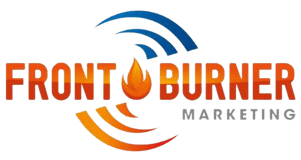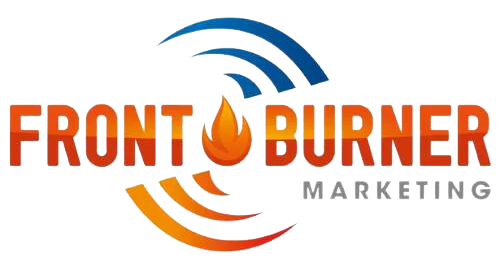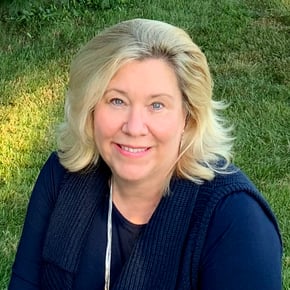At Front Burner, we’ve always believed in growth. So much so that “Empower Growth” is literally baked into our core values. That should make sense since - after all - our business depends on helping other businesses grow, but it’s more than that. We want to grow as individuals, as marketing professionals, and as a company. After 23 years, we’re still building, still evolving, and still asking ourselves: What’s next?
But here’s the thing about growth—it’s not just about learning more. It’s also about unlearning, and that’s a much harder skill to master.
We’ve all been taught that expertise comes from accumulating knowledge, refining skills, and becoming the go-to person in your field. And that’s true—to a point. Experience and expertise are even part of the acronym we use in marketing to define high-quality content: E-E-A-T (Experience, Expertise, Authority, Trustworthiness). But in today’s fast-moving marketing landscape, being an expert isn’t enough. You have to be willing to let go of what you know.
HubSpot co-founder Dharmesh Shah put it perfectly:
“The ability to unlearn is even more important than the ability to learn. Because unlearning requires you to admit you were wrong—and that’s hard.”
Hard, yes. But necessary.
Unlearning means questioning the tools, tactics, and processes you’ve relied on for years. It means being willing to walk away from what’s familiar—even if it’s comfortable or “good enough”—to make room for something better. It’s not just about staying current. It’s about staying relevant.
We recently explored this topic on our podcast, The Spark (yes, that’s a nod to our name—Front Burner!), where a couple of folks on our leadership team sat down to reflect on how unlearning has reshaped our agency. We asked ourselves: If we were starting Front Burner today, what would we do differently? That question led to some honest introspection—and some sweeping changes.
Here are a few of the big ones:
1. We cleaned house on our tech stack.
Over the years, we’d accumulated a lot of apps and utilities—some of which were outdated, redundant, or underused. We found tools that no one even realized we were paying for. So we did a full audit, eliminated what wasn’t working, and assigned “Application Leads” to the tools we kept. These team members are now responsible for knowing the ins and outs of their assigned app and helping others learn how to use it. We also added a quarterly review of our tech stack to stay ahead of the curve.
2. We handed over our social media to our Gen Z team members.
Like many agencies, we’ve been guilty of neglecting our own marketing while focusing on client work. Our social content had gotten stale and too “salesy”—something we’d never tolerate in a client’s feed. So we handed the reins to two of our twenty-something team members and told them to have fun with it. And they did. Engagement tripled. The content is fresh, authentic, and way more fun. I may not “get” every post, but I love the energy—and we’re not going back.
3. We stopped chasing quantity in prospecting.
For a while, our outreach was broad—hundreds of emails, relatively generic messaging, and a wide net. But the result was that leads weren’t as well-qualified as we’d thought, and the conversations felt forced. So we flipped the script. Now we focus on a smaller group of companies we genuinely want to work with—ones that are a great fit for our size and strengths. The conversations are more personal, the leads are stronger, and the results are better for everyone.
4. We redefined our service scopes.
This one was a biggie. We used to say “yes” to just about everything if it was marketing related. If a client asked for something, we’d do it—even if it wasn’t in the scope. At the end of the month, we’d look at the bill and think, “we can’t charge them for all this.” We were over-delivering, under-billing, and confusing our clients about what they could expect from us each month in the process. So we blew up our service offerings, proposal templates, and engagement models. Now, everything is clear. Clients know what’s included, and we have upfront conversations about add-ons. It’s respectful, transparent, and sustainable.
5. We identified our best-fit clients—and let go of the rest.
This was tough. We’ve built relationships over years, and it’s hard to say goodbye. But not every client is a fit forever. We defined the attributes of our ideal clients and made the decision to release the ones who weren’t. It’s created space for better partnerships and more fulfilling work.
6. We reimagined our ERP system.
Our financial and time-tracking system wasn’t giving us the data we needed. We were running manual spreadsheets to fill the gaps. After reviewing alternatives (and surviving a few “screaming hot end-of-quarter deals”), we realized the best path was to hire a consultant to help us unlock the full potential of the system we already had. It wasn’t fun—relearning how to enter time, create invoices, and record payments never is—but the payoff was huge. We now have better data, faster reporting, and more confidence in our numbers.
Unlearning isn’t easy. It requires humility, courage, and a willingness to challenge your own assumptions. But it’s also incredibly freeing. When you let go of what’s no longer working, you make space for clarity, simplicity, and growth.
Artificial intelligence is a perfect example. You can’t just bolt AI onto your old processes and expect magic. In fact, it might just help you fail faster. To truly benefit, you have to rethink how you work—starting from scratch if necessary. That’s the kind of unlearning that leads to real transformation.
So here’s our advice: Don’t waste time trying to fix what’s just “okay” because it’s what you know. I wouldn’t blow everything up at once, either though. Instead, create a system for regularly reviewing your tools, processes, and partnerships. Ask yourself, is this helping us grow—or just keeping us busy?
Unlearning is uncomfortable. But it’s also the path to something that will be far better.
Become a Marketing Rockstar
Want the inside scoop on our agency and our culture? Apply for our Marketing Rockstars Program. You'll get access to exclusive content and be the first to know when we have a job opening available.




